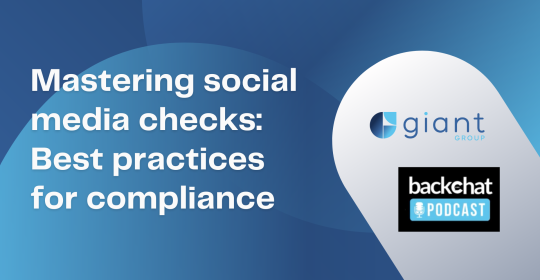- 53% lack confidence that their employer is investing in their skills development
- 42% think AI will replace most or some of their job functions
- 18% of UK workers believe that AI will have no impact on their jobs, placing them in the top 5 out of the 18 countries studied in the survey
In today's highly competitive and rapidly evolving workplace, skill development and training are more crucial than ever. Global workers, however, have expressed dissatisfaction with their employers in this area, according to the ADP Research’s People at Work 2024: A Global Workforce View. Moreover, a worker's skill level directly influences their perspective on the growing impact of artificial intelligence (AI).
While most (60%) agree they have the skills needed to advance their career to the next job level in the next three years, less than half (47%) feel their employer invests in the skills they need to advance. Almost half of the global workforce surveyed agree that future skill sets will include technological abilities that are not currently seen as essential for the job.
Sirsha Haldar, General Manager for Northern Europe at ADP says: "It's concerning, though not surprising, that workers feel their employers are not prioritising their career development through skills training. Employers today are managing multiple serious priorities, from navigating shifting workplace dynamics to meeting employees' expectations around pay. However, this data should serve as a wake-up call. Skills development is clearly something employees desire, and we know that it’s a critical factor for career progression, engagement, retention, and business outcomes. Employees are the backbone of every business, so prioritising their development should be among the key business drivers."
A generational divide
When considering the skills confidence gap, differences are apparent across generations.
Among workers aged 18 to 24, only 43% think they have the skills they need to advance their career. That sentiment changes quickly as workers age, however. Among 25- to 34-year-olds, 62% say they have the skills they need. Young adults aren’t reluctant to ask for training. More than 72% of 25- to 34-year-olds talk to their employers about skills and training, as do 69% of their younger colleagues.
Mixed views on role of AI
According to the research, a significant portion of workers (43%) view the integration of AI into their jobs positively, anticipating it will assist them in various tasks. However, a similar percentage (42%) are concerned that AI will replace some or most of their job functions. Among those who expect regular assistance from AI, a high percentage (70%) feel confident about their skills for career advancement in the next three years. Conversely, those with less confidence in their skill set (45%) are more apprehensive about AI's impact on their jobs, particularly as they perceive less employer investment in skills training. This suggests a direct correlation between workers' confidence in their skills and their perception of employer support in the face of AI advancements.
Smaller companies lead in skills development
Smaller companies do well when it comes to skills development. Employers with between 100 and 249 workers win the highest marks on training, with nearly 57% of workers reporting confidence in their ability to obtain needed skills on the job. At companies with 1,000 or more employees, only 35% of workers feel they’re being offered the skills training they need to advance their careers.
Skills gap confidence in the UK:
While this skills gap confidence is very much a global issue, there are nuances among regions. The report highlights the following issues in the UK:
- Career Progression Concerns: Lack of career advancement is a major driver of job dissatisfaction in the UK. Of those surveyed who were not satisfied with their current employment, 26% cited a lack of career progression as the primary reason. Globally, this figure is just 18%, and demographically the discrepancy is even more significant.
- Women and early-career professionals are the most concerned. 29% of women in the UK identify career progression as their main concern compared to just 17% of women globally, highlighting more gender discrepancy in development confidence in Britain. Furthermore, 31% of all those aged between 25-34 in the UK’s primary concern is career progression, compared to just 17% in the same age-range globally.
- AI Anxiety Among Younger Workers: While only 12% of UK workers believe AI will replace most of their job functions within the next 2-3 years, this sentiment nearly doubles among younger professionals. A striking 23% of those aged 18-24 anticipate AI disrupting their roles in the same timeframe, indicating heightened concern about skills and job security among the younger workforce.
- UK workers Focus on People Skills Amid Shifting Priorities: Globally, 33% of workers rank people skills as the most important for their roles over the next five years, but this jumps to 42% among UK employees – highlighting a stronger focus on interpersonal abilities. Interestingly, UK respondents place less emphasis on management skills (30%) compared to the global average of 38%, suggesting a shift in priorities where collaboration and communication are seen as more critical for success.
Sirsha Haldar comments: “The world is changing fast with AI and GenAI being used more and more. This is going to result in complete change in many job definitions. Both employees and employers will need to brace for constant upskilling and reskilling needs. I think our companies need to consider more long-term structure and additional funding for skills development to remain competitive or even to survive.”






